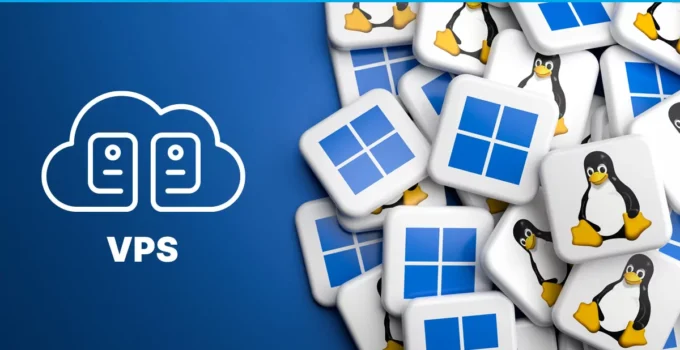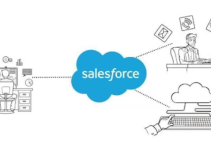Choosing the right operating system (OS) for your virtual private server (VPS) is an important decision that goes beyond mere preference: the choice has a significant impact on the performance, security, and overall functionality of the server.With so many different options available on the market, it’s important to understand the key factors that influence your choice. This comprehensive guide will help you navigate your choices to ensure your VPS runs smoothly and efficiently.
Popular Operating Systems for VPS Servers
VPS hosting offers a variety of operating systems to meet different needs; Linux distributions such as Ubuntu, CentOS and Debian are known for their stability, security features and extensive community support.
Windows Server, on the other hand, offers a user-friendly interface and compatibility with various Microsoft applications. This choice becomes even more important if you are looking for a customized solution such as VPSEstonia. Customized options include localization features, data privacy and unique scalability to meet the specific requirements of certain regions.
Project and Application Requirements

Source: vps.net
The choice of VPS operating system should be coordinated with the project and application requirements. For example, Linux distributions such as Ubuntu and CentOS are often favored when building web applications due to their high performance and broad software compatibility.
Conversely, when building an e-commerce platform, factors such as compliance with regional data security regulations can dictate the selection of an OS that supports these requirements. For businesses and individuals interested in a VPS in Estonia, an OS that is compliant with the country’s regulatory framework and internet infrastructure is essential.
Security and Updates
Security is of paramount importance for VPS hosting. The operating system chosen should have a history of timely updates and vulnerability fixes; Linux distributions are known for their strong security features, regular updates and active community involvement in identifying and fixing security issues.
On the other hand, WindowsServer provides a highly secure environment suitable for a variety of business requirements. This aspect is even more important when choosing a VPS in Estonia, as data privacy and compliance with local regulations are of paramount importance when protecting sensitive information.
Examples of OS Selection for Different Scenarios

Source: ideastack.com
To illustrate the important role of OS selection, let’s look at a few specific scenarios
Web hosting: hosting a business website requires stability and reliability; Linux distributions such as Ubuntu and CentOS provide a solid foundation and are often preferred for their security features and community support.
EstonianVPS for e-commerce: e-commerce platforms targeting the Estonian market need an OS that provides localization, data privacy, and fast bootup. The OS must comply with Estonian regulatory requirements, making EstonianVPS a strategic choice.
Game server hosting: hosting a game server requires optimal performance and low latency; Windows Server is ideally suited for game enthusiasts, as it is well suited for some games and has a user-friendly interface.
Management and Configuration
The management and configuration of your chosen OS play a pivotal role in your VPS experience. Some OS options, like Windows Server, offer user-friendly control panels that simplify administrative tasks. Conversely, Linux distributions provide more flexibility for advanced users who prefer manual configuration via the command line. Considering your technical expertise and the level of control you require is essential in making the right decision.
Hardware and Resource Considerations

Source: kinsta.com
CPU Requirements: Explain the CPU specifications necessary for optimal performance with the selected operating system. Discuss how different OSs may have varying CPU demands.
RAM Allocation: Discuss the RAM requirements and how they might vary between operating systems. Explain the importance of allocating sufficient RAM to prevent performance bottlenecks.
Storage Needs: Describe the storage space needed for the chosen OS, including the base installation and any additional software or data. Discuss the pros and cons of different storage types (e.g., SSDs vs. HDDs) in relation to OS performance.
Network Considerations: Address the network requirements, such as bandwidth and latency, for your chosen OS. Explain how the OS interacts with networking components and any network-related optimizations.
Resource Scalability: Discuss how easy it is to scale hardware resources up or down based on your chosen OS. Explain the implications for performance and cost as your server’s resource needs change.
Licensing and Cost
Operating System Costs: Provide a breakdown of the costs associated with different operating systems. Include information on licensing fees, subscription models, or any free and open-source options.
License Types: Explain the various types of licenses for your chosen OS(s), such as proprietary licenses, open-source licenses, and enterprise licensing models. Discuss how these licenses may impact your budget.
Total Cost of Ownership (TCO): Analyze the TCO over time, factoring in not only the initial licensing costs but also ongoing maintenance, support, and potential upgrade expenses. Provide a cost comparison for different OS options.
Backup and Disaster Recovery

Source: business-reporter.co.uk
Backup Compatibility: Detail how well the chosen OS supports various backup solutions. Discuss whether it facilitates automated backups, snapshotting, or integration with third-party backup services.
Disaster Recovery Planning: Explain how disaster recovery strategies are affected by the OS choice. Discuss failover capabilities, data replication, and backup retention policies that align with the OS’s capabilities.
Data Integrity and Security: Discuss how data integrity and security are maintained during backups and disaster recovery processes with the chosen OS. Highlight any built-in security features that protect backup data.
Compatibility with Applications
Application Ecosystem: Evaluate the compatibility of your critical applications and services with the chosen OS. Discuss any known issues or optimizations required for smooth operation.
Middleware and Dependencies: Examine how well the OS accommodates the middleware and dependencies required by your applications. Address any potential conflicts or issues related to libraries or frameworks.
Containerization and Virtualization: Discuss the feasibility of using containerization or virtualization technologies to isolate applications from the underlying OS, ensuring compatibility and ease of management.
In conclusion, the choice of an operating system for your VPS server carries substantial implications for its performance, security, and adaptability. As we’ve explored in this comprehensive guide, considering factors like hardware compatibility, licensing costs, backup and disaster recovery capabilities, and application compatibility is crucial.
By meticulously analyzing your project’s requirements, you can ensure that the selected operating system aligns perfectly with your goals. Prioritizing security measures is essential to safeguard your data and maintain a robust defense against potential threats.
Remember that the distinctive traits of different operating systems play a significant role in shaping your server’s behavior. Whether you’re opting for a widely-used Linux distribution or exploring tailored solutions like Estonia VPS, your choice should reflect your specific needs and preferences.







